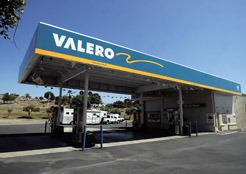
The lawsuit that could derail the city of San Juan Bautista’s lifting of a prior ban against franchise businesses focuses on the California Environmental Quality Act, claiming officials failed to interpret the ordinance as a “project” – which usually triggers the need for an environmental review.
That lawsuit filed in June is spurring San Juan officials to reconsider their action taken in March, when they rescinded a decade-long ban against “formula” businesses such as chain restaurants or other franchise retailers. A group of anonymous residents calling themselves the Alliance of Concerned Citizens Organized for Responsible Development, or ACCORD, filed the suit while represented by San Francisco-based law firm SSL. As noted in the suit, the residents in the group all live, work and own property in San Juan.
The group argues that San Juan had to follow CEQA because the ordinance falls under the definition of a project – because it provides a potential for direct, physical change in the environment – and that the state law exempts only a “narrow subset of projects from environmental review,” according to the lawsuit filed at the San Benito County Courthouse.
Within that document, the ACCORD group contends that making such changes as permitting drive-through restaurants “eviscerates the protections that preserved the city’s historic character. The lawsuit argues that the city pursued the ordinance change in March as an “ex post facto attempt to justify” approving a chain gas station, drive through restaurant and convenience store.
In December 2002, the city implemented the franchise ban against formula businesses and since then has renewed the ordinance three times, even as chains such as Subway have expressed interest in opening a shop in the Mission City. The updated law, approved in March, had given more leeway to the city in allowing franchise businesses on the outskirts of the city, especially along Highway 156 and other entrance points.
Now with a planning commission recommendation last week to rescind the ordinance – on a recommendation from the city manager, due to the lawsuit – city council members next week are expected to follow through and confirm the decision, City Manager Roger Grimsley said.
Grimsley estimated that the lawsuit challenging the lack of an environmental review related to the law change would cost about $150,000 to defend. He believes the group filing it – through a San Francisco-based law firm SSL – is a “handful of people” spurred by the pending approval of an Arco gas station at Highway 156 and The Alameda.









